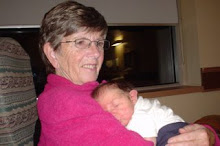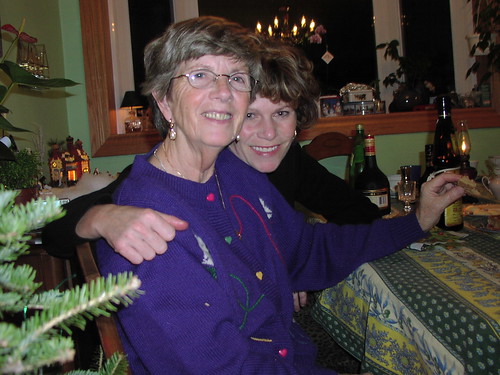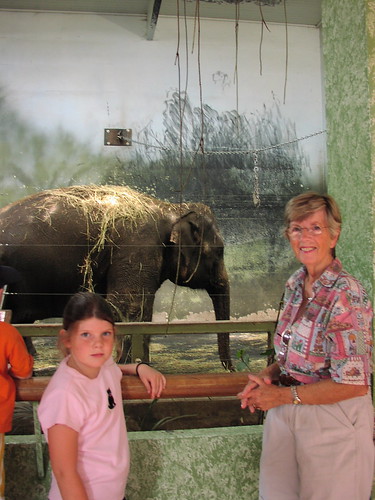In the fall of 2000 a girlfriend and I visited Europe, along with my mother and Henny. Our destination was Prague by way of Vienna but we had a stop-over in Rome and spent a full day and night in the city. After a red-eye flight and a day of exploration we found ourselves in a tiny hotel room with a view of St. Peter’s Basilica.
Mom and I hunkered down in one room together, but we were jet-lagged and couldn’t sleep. And so we talked for a while about life, about family, about a million dreamy, inconsequential things. Then there was a knock at the door. It was Henny. She couldn’t sleep either and had heard us talking. Could she join the conversation?
There is something about the darkness, I think, that frees people to speak of the things that are too raw, too fragile to withstand daylight’s glare. And so as the moonlight streamed across the ancient city’s rooftops and into our room, she talked.
It had been years since she had been in Rome, she said. Just being in Europe brought back memories. Henny was five years old when German forces attacked the Netherlands. She lived in the capital De Hague throughout the Nazi occupation. She remembered that they were always hungry. That they boiled and ate tulip bulbs to stave off starvation.
There were no dogs and cats left in the city, but even as a little girl she knew better than to ask where they had gone. They were always cold in the winter, she said. There was no heating fuel so they burned everything they could to stay warm. City residents would bicycle to the outskirts of the city to forage firewood but the Nazis would set up checkpoints and confiscate their findings when they returned to the city.
She chuckled remembering how she and her little friends would ride their bikes out beyond the checkpoints to warn people to take an alternate route. She remembers the Nazis discovering what they were doing and how she peddled furiously away on her little girl bike as gunshots rang out behind her.
It was probably four in the morning. We were mesmerized. Her voice was quiet, but strong with a lilting Dutch accent. I remember meeting my mother’s eyes across the room and seeing that she too, was crying. I remember bowing my head and not wanting to make a noise, lest it break the spell.
She told us about her brother Eugene who was in the resistance movement and how she felt so proud of him, but was riddled with anxiety for her mother, who could barely function, so terrified was she that Eugene would be caught.
She remembered that he would return home occasionally with a precious block of cheese that all the neighbors would share. She remembers the Nazi officers searching their home for her brother. They found him eventually, she said.
Eugene was sent to a concentration camp. No one ever saw him again but after the war one of his cellmates from the camp tracked down her family and knocked on their door. He presented her mother with a note Eugene wrote for her before he died.
Her mother died shortly afterwards, mostly of a broken heart. Henny was ten. Her father was never the same, she said. He remarried a woman who didn’t like her so she joined the air force as soon as she turned 18 and immigrated to Canada at the first possible opportunity a few years later.
Her remembrances, that surreal night in Rome, are something I will never forget. When I told Rob, he said I had learned more in that evening about his mother’s childhood than he had ever known.
I am not surprised. Our parents are not like us. They do not value the constant self-analysis in which we indulge. Their hearts are strong because they protect them, they do not bear their souls for the quick fix of a sympathetic ear.
Henny was a happy, vibrant woman. She played competitive tennis at the provincial level. She was a superb gardener. She played so energetically with Graham that the mere mention of her starts him shrieking and running about the room.
She must have known that this child, this flesh of her flesh, would never fully understand what her childhood was like. She must know that none of her children or grandchildren would. It is a testament to her grace that she used to read my musings here and wasn’t disgusted by the pure self-indulgence of them.
It’s not easy to take a step back and realize that most of the choices we agonize over are pure luxuries, most of our worries as inconsequential as dandruff. But when I find myself worrying about time or money, or feeling hurt or slighted or frustrated or uncertain, I will take a step back and remember the stories that Henny told me that night in Rome.
I will remember.
Subscribe to:
Post Comments (Atom)




No comments:
Post a Comment